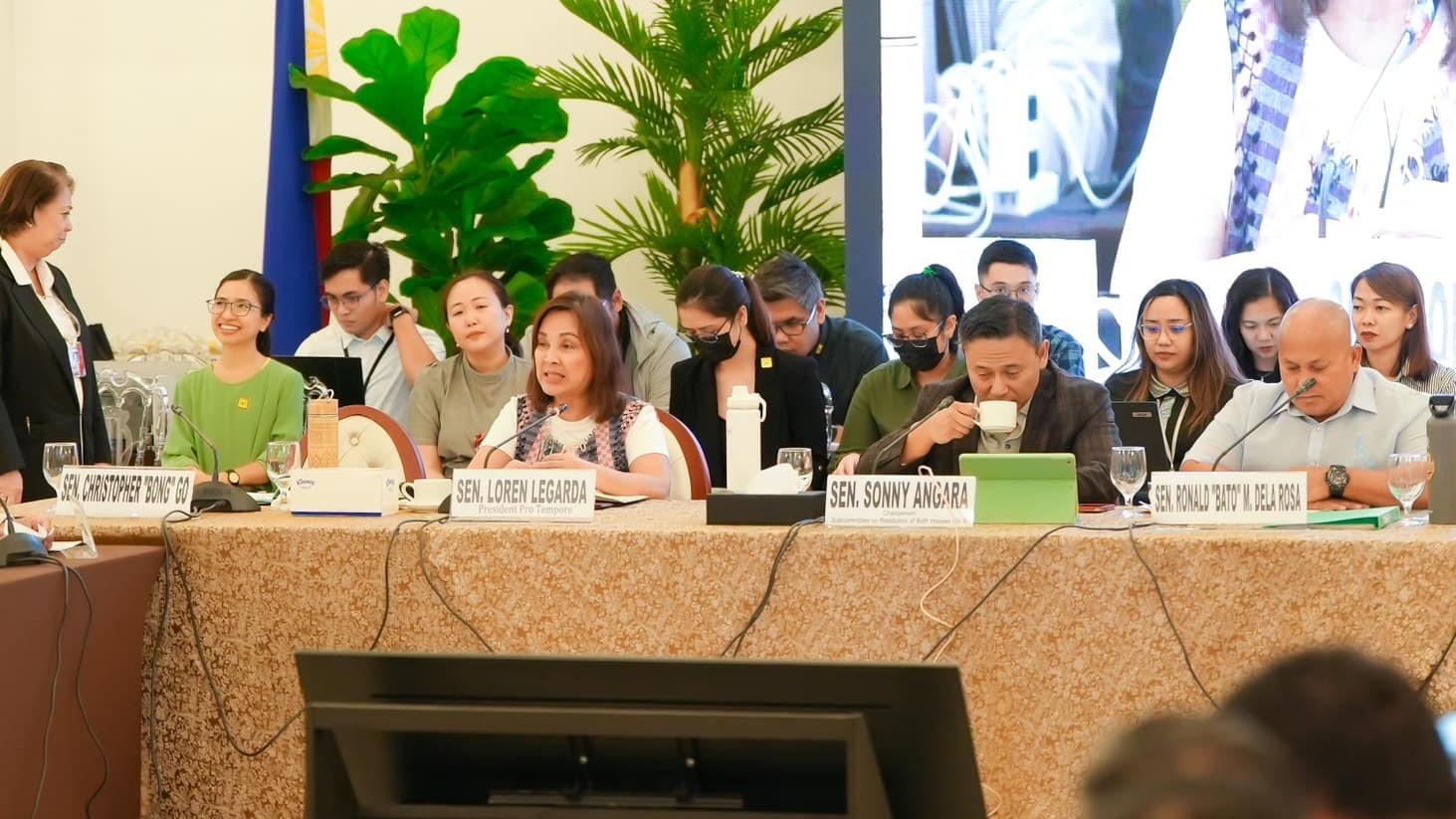Gov't, school execs in north Luzon raise concerns over Cha-cha push for foreign ownership

Several stakeholders from the academe and government in northern Luzon on Friday expressed concern about proposed amendments to the 1987 Constitution that would allow foreigners to own public utilities and educational institutions.
During a Senate subcommittee hearing, Pangasinan State University-Bayambang Campus executive director Dr. Gudelia Samson expressed opposition to laws that would give complete ownership of any school in the country to a foreign entity.
"Opening Philippine schools to 100% foreign ownership does not and will not resolve the current education crisis, which is caused by decades of insufficient public funding for education… low salaries for teachers, [and] perennial backlogs," she said.
Further, Samson warned that this would lead to commercialization of the educational system.
"Opening the education system to 100% foreign ownership may also force some small- and medium-sized public schools to shut down, which can consequently cause labor lay-off and displacement of students," she said.
Samson said that instead of foreign ownership, the educational institution can engage in mutually beneficial academic linkages and through studying the best practices abroad, which may be adopted by the Philippines.
This developed as the Senate Subcommittee on Resolution of Both Houses 6 (RBH 6) on Friday held its first out-of-town hearing in Baguio City.
RBH 6, filed by Senate President Juan Miguel Zubiri, Senate President Pro Tempore Loren Legarda, and Senator Sonny Angara, seeks to amend certain economic provisions of the 1987 Constitution, particularly those related to the economy, education, and its general provisions.
Foreign 'domination'
Meanwhile, Dr. Marie Claire Briones, another executive director of the university, warned that unrestricted foreign ownership may lead to "economic domination" by foreign entities.
She said this may potentially undermine national sovereignty and control over some sectors.
"There are also concerns about the equitable distribution of benefits and the protection of local industries," said Briones, who is the executive director of the Bayambang campus.
Despite this, she said there were also benefits to foreign capital such as an increase in infrastructure development and competitiveness among industries.
Balanced approach
For her part, Briones said that foreign investments may enhance competition, improve service quality, and bring in advanced technologies.
"For the negative impact… it could compromise the integrity of information dissemination, affect national security, and lead to foreign influence over public opinion and cultural content," she said.
Due to this, she said they are recommending a "balanced approach" to foreign investment.
"While attracting foreign investment is crucial to economic development, it is important to maintain a balance that protects national interest," she said.
Briones said policies strengthening and supporting local industries must also be implemented to ensure that they will be able to compete with foreign counterparts.
Keep unchanged
Meanwhile, the Department of Labor and Employment (DOLE) in the Cordillera Administrative Region (CAR) recommended that the provision on foreign participation in public utilities remain unchanged.
"While we support the intention of this measure to relax the limitations imposed by the Constitution as to foreign capital investment… we suggest to maintain the provision of the Constitution as to equity and foreign participation in public utilities," said Emerito Narag, Labor and Employment CAR officer-in-charge.
According to Narag, the department believes that the Constitution already imposes "reasonable limitations" on foreign participation and takes into consideration the Filipino First policy.
Narag said that allowing foreigners to control public utilities may be against national interest.
Unless provided by law
For her part, Legarda assured that the resolution would only cover some industries should it gain approval.
The resolution proposes amendments to specific economic provisions on public utilities, basic educational institutions, and advertising industry.
"It does not already open the economy in certain sectors. Because all we're doing is, there's a provision that says, unless otherwise provided by law. Meaning inaatas po sa lehislatura (Meaning the responsibility will be given to the legislature), we still have to enact the pieces of legislation that will lead to that 100%… ownership," she said.
However, Baguio Water District chairperson and University of Cordilleras College of Law Dean Renato Rondez said they were concerned about the phrase "unless otherwise provided by law."
"Because it may lead to a situation where no law may now be declared unconstitutional because of the phrase unless otherwise provided by law," he said.
Protecting local industries
Meanwhile, Baguio Mayor Benjamin Magalong asked the senators for measures that would protect local industries from being overwhelmed.
In response, Angara cited the Tatak Pinoy Law, which he said requires the government to prioritize domestic producers in its purchases.
"We can use our incentive laws, our investment laws… we can put in some of the measures mentioned… [which provide that] you must employ locals. So that's a counterpart," he said.
He previously said the subcomittee's report is expected to be released after the Congress sine die break.
The counterpart measure of RBH 6 in the House of Representatives was already passed on third and final reading last March.
That same month, however, the top leaders of the Senate said there was no need to rush the passage of RBH 6 following the results of the Pulse Asia survey, which showed that at least 88% of Filipinos are against Charter change. — VDV, GMA Integrated News




